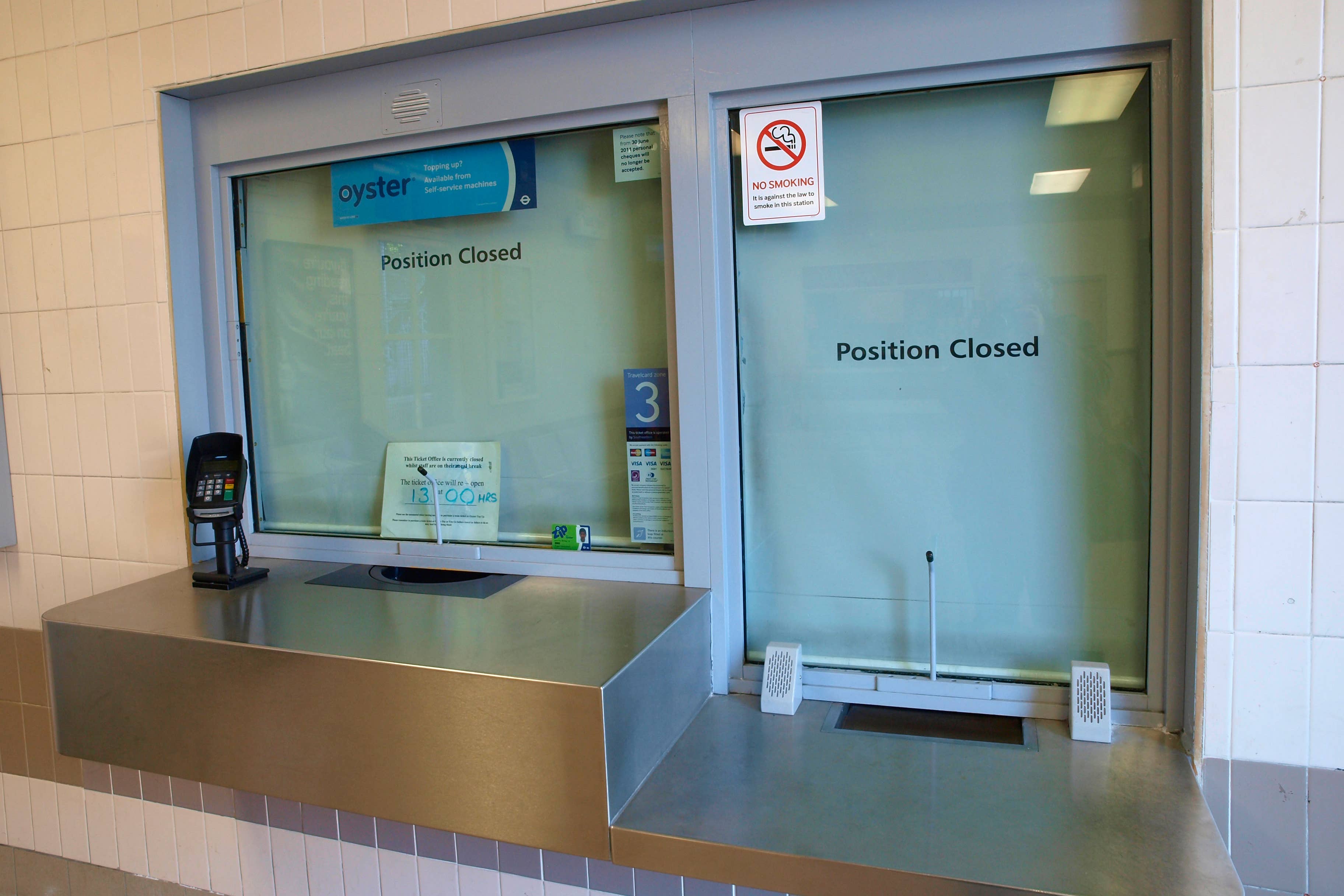Anger over plans for mass closure of railway station ticket offices
Transport Secretary Mark Harper wrote to train operators asking them to cut costs.

Your support helps us to tell the story
This election is still a dead heat, according to most polls. In a fight with such wafer-thin margins, we need reporters on the ground talking to the people Trump and Harris are courting. Your support allows us to keep sending journalists to the story.
The Independent is trusted by 27 million Americans from across the entire political spectrum every month. Unlike many other quality news outlets, we choose not to lock you out of our reporting and analysis with paywalls. But quality journalism must still be paid for.
Help us keep bring these critical stories to light. Your support makes all the difference.
Plans for a mass closure of railway station ticket offices in England have been widely condemned.
Industry body the Rail Delivery Group (RDG) unveiled proposals which could lead to nearly all offices being shut.
This includes those at some of the UK’s busiest stations, such as London Waterloo, London Euston, Birmingham New Street and Manchester Piccadilly.
It comes after Transport Secretary Mark Harper wrote to train operators asking them to cut costs.
The RDG insisted moving ticket office staff on to station platforms and concourses will “modernise customer service” and pledged there will be “more staff available to give face-to-face help”.
Disability charities and trade unions are among those who have voiced their anger at the scheme, claiming it will lead to job losses and put some vulnerable passengers off train travel.
Louise Rubin, head of policy at disability equality charity Scope, said: “We’ve had little reassurance that these changes will make our rail network more accessible for disabled people.
“We’re deeply concerned that they will result in more people being stranded without the support they need.”
Stephen Brookes, rail policy adviser for charity Disability Rights UK, also condemned the programme.
He said: “Disabled and older people, who experience the greatest digital exclusion, are going to be the hardest hit.
“For people unable to buy tickets online, the ticket office is where they get journey information and the best deals.”
The Rail, Maritime and Transport (RMT) union, which has been engaged in more than a year of strike action on the railways in a bitter dispute over jobs, pay and conditions, described the closure policy as “a savage attack on railway workers, their families and the travelling public”.
General secretary Mick Lynch said “hundreds of redundancy notices” are being issued to ticket office staff.
The PA news agency understands that a consultation process with affected staff has begun, where they will be offered new roles. Operators say they hope to avoid compulsory redundancies.
Southeastern said there will be “fewer staff” at its “medium and larger sized stations” if ticket offices close.
Maggie Koumi, 80, who used the ticket office at London’s Charing Cross station on Wednesday, said: “I hate modern technology. I’m not very good at using machines anyway.
Sometimes you need to ask things... there are lots of things you can't do on the ticket machine, and they're often not working anyway
“Sometimes you need to ask things… there are lots of things you can’t do on the ticket machine, and they’re often not working anyway.
“(Ticket offices closing) will not put me off travelling but it is going to be a pain.”
Another passenger at the station, Tim Clark, 65, said: “Doing everything online is very convenient for a huge number of people but it unfortunately ignores those who don’t have that kind of connection, particularly older people.”
There are 1,007 stations with ticket offices in England run by train companies operating under contracts issued by the UK Government.
Posters are on display at the vast majority of these, informing passengers about the potential closure of their ticket office.
Following a consultation, operators will select which offices they want to close, with the Transport Secretary making the final decision in cases where there is an objection by a passenger watchdog.
It is not known how quickly the first sites will close, but the programme is expected to last for three years.
The RDG said 12% of train tickets are bought from offices at stations, down from 82% in 1995.
Passengers will be asked to pay for journeys by tapping contactless cards on barriers, using self-service machines, or buying tickets from staff on station concourses or trains if possible.
There will be “ticket office facilities” in place at the busiest stations “while the transition takes place”, according to the RDG.
Rail minister Huw Merriman said: “Instead of station staff being stuck behind the counter of a ticket office, new proposals for stations would free them up to get out and about on to station concourses and platforms, and no station will become unstaffed as a result of these changes.
“It’s also really important we continue to support those with different accessibility needs.
“A key aim of these proposals is to help station staff to be more visible and accessible, and able to help anyone who needs additional support.”
RDG chief executive Jacqueline Starr said: “The ways our customers buy tickets has changed and it’s time for the railway to change with them.
“With just 12% of tickets being sold from ticket offices last year, and 99% of those transactions being available on TVMs (ticket vending machines) or online, our proposals would mean more staff on hand to give face-to-face help with a much wider range of support, from journey planning, to finding the right ticket and helping those with accessibility needs.
“Our commitment is that we will always treat our staff, who are hugely valued and integral to the experience our customers have on the railway, fairly, with support and extra training to move into new more engaging roles.”